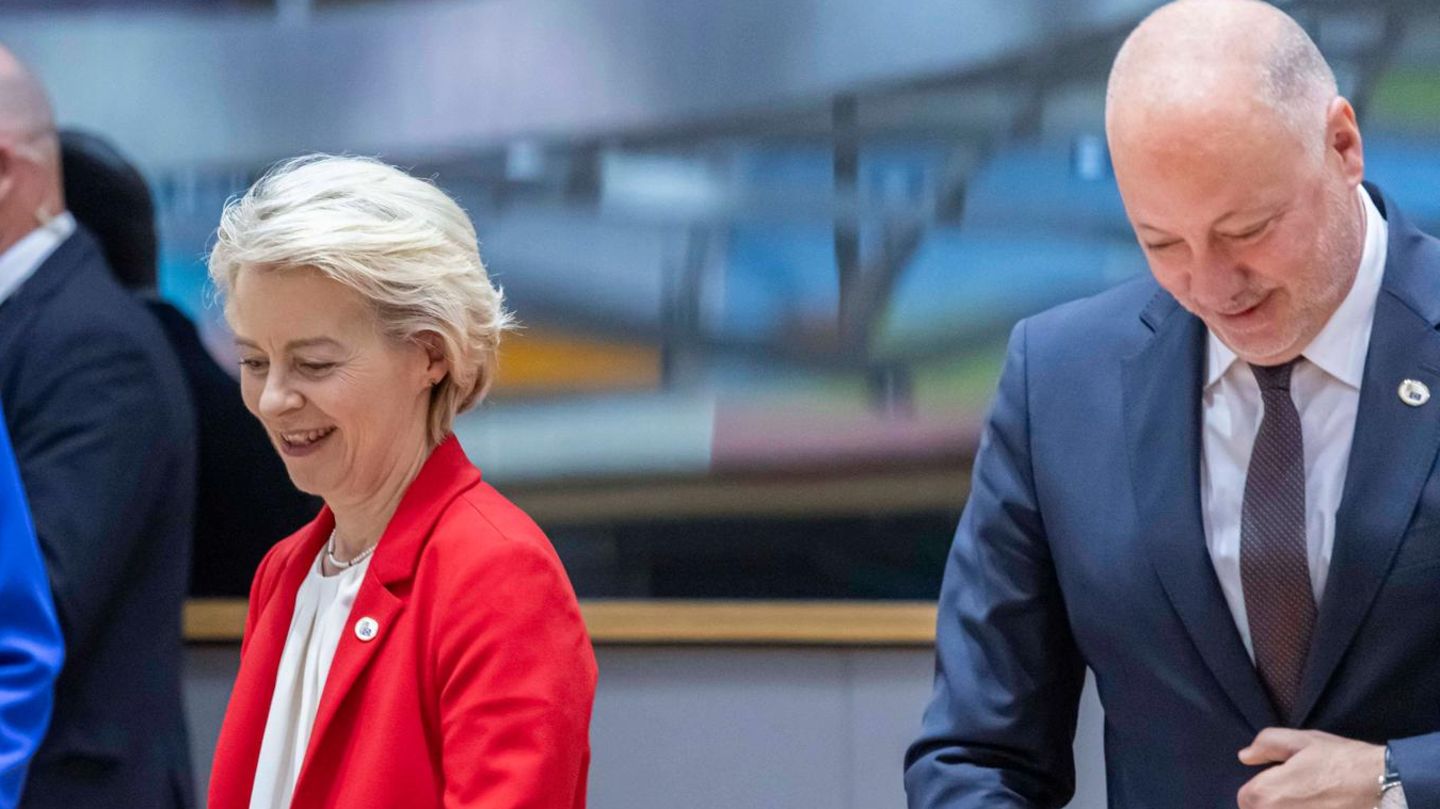From January 1, 2026
EU summit gives the green light for the introduction of the euro in Bulgaria
Copy the current link
Add to the memorial list
A currency change is closer: The EU heads of state and government are also in favor of paying the euro in Bulgaria from 2026- not the last step.
Bulgaria has received the Green Light from the heads of state and government of the other EU countries for the introduction of the community currency. Chancellor Friedrich Merz and his colleagues stood behind the EU Commission’s proposal at a summit in Brussels, which allowed the euro introduction in the Balkans on January 1, 2026. Before that, the EU finance ministers had already done this, which now have to formally agree again.
The Balkanland has been a member of the European Union since 2007 and would be the 21st country with the community currency. As the last country so far, Croatia was included in the circle of Eurostaates on January 1, 2023.
Trade and travel in EU are easier
Another country in the common currency area makes trade and travel easier. If you do business or want to invest, you no longer have to worry about changing courses. Tourists would also benefit because they no longer have to get a national currency after Bulgaria’s euro access to Bulgaria, which is usually associated with costs.
The introduction of the euro was planned earlier. Bulgaria is one of the poorer EU countries and is also 2024 EU conclusion in the gross domestic product (GDP) per capita-although the growth rates were higher than elsewhere.
Bulgaria originally wanted to replace his state currency Lew (German: Löwe) with the euro in early 2024. Among other things, because of the then comparatively high inflation rate of 9.5 percent, accession was postponed.
The introduction of the euro will not run smoothly, the resistance in the country is great. In February, nationalists lit a fire and poured red color onto the glass facade of the building before the EU representation in Sofia.
Bulgaria is divided into two camps
At the end of May, supporters demonstrated by Prorussian and nationalist parties in the capital Sofia and in other cities. They want the state currency to be preserved because they fear that the euro will drive up prices.
For the summit, supporters of the small, pro -Russian nationalist party Welitschie (glory) in Brussels had announced a car collar against the desired introduction of the euro – they traveled all over Europe. A large protest of the Prorussian Nationalist Party Wasraschdane (rebirth) is again planned in Sofia for this Saturday.
According to surveys, Bulgaria’s population is divided into two camps on the euro question. According to an opinion survey by the Bulgarian Institute Mjara from mid -May, more than half of the adults (54.9 percent) are against an introduction to the Euro 2026. A third (34.4 percent) is advocated to join the euro zone in the coming year.
Dpa
TIS / Katharina Redanz and Elena Lalowa
Source: Stern
I have been working in the news industry for over 6 years, first as a reporter and now as an editor. I have covered politics extensively, and my work has appeared in major newspapers and online news outlets around the world. In addition to my writing, I also contribute regularly to 24 Hours World.




